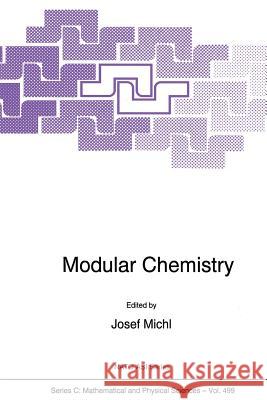Modular Chemistry » książka
Modular Chemistry
ISBN-13: 9789401063531 / Angielski / Miękka / 2012 / 677 str.
Modular Chemistry: the First Steps In recent years, there has been increasing interest among chemists, physicists, materials scientists, biologists, engineers, and others in the assembly of well defmed, relatively large functional structures from repetitive units that themselves are molecules of some complexity. Using the dictionary defmition of a module (a detachable section, compartment, or unit with a specific purpose or function, and in electronics, a compact assembly functioning as a component of a larger unit) 1], we feel that this newly emerging field of endeavor could be called "modular chemistry" 2]. The NATO Advanced Research Workshop on Modular Chemistry that was held on September 9 to 12, 1995, at Aspen Lodge near Estes Park, Colorado, was meant to bring together prominent contributors to modular chemistry as it is being born, and to examine the associated birth pangs. It was concluded that although real, these are not nearly as bad as giving birth to a hedgehog tail first, and that the ultimate rewards were likely to be far more satisfying in terms of new ideas and enabling methodology. The level of excitement about the possibilities that are opening up for modular chemists, and also the challenge involved, are perhaps best documented by noting that the planned discussion periods at the workshop were as long as the oral presentation periods, and yet, each discussion ran over the allocated time.











